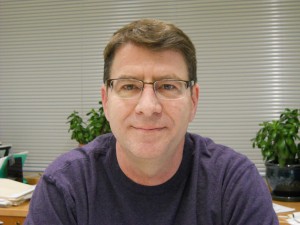 Phil Messersmith, Editor-in-Chief
Phil Messersmith, Editor-in-Chief
Phillip B. Messersmith is a professor of Biomedical Engineering, Materials Science and Engineering and Chemical and Biological Engineering at Northwestern University. He earned his B.S. degree in life sciences in 1985 and his Ph.D. degree in materials science and engineering in 1993 from the University of Illinois at Urbana. Dr. Messersmith was a postdoctoral fellow at Cornell University from 1993-1994 and a faculty member at the University of Illinois at Chicago from 1994-1997. His research interests include studies of biological adhesives, including mussel adhesive proteins and gecko adhesives, the design of biomimetic adhesive polymers and polymer composites, development of novel biomaterials for regenerative medicine, and antifouling polymer surfaces. His awards and honors include a young investigator award from the Whitaker Foundation, a MERIT award from the National Institutes of Health, and the Langmuir Lecture Award from the American Chemical Society. Dr. Messersmith is a fellow of the American Institute for Medical and Biological Engineering, the Royal Society of Chemistry, and of Biomaterials Science and Engineering. Dr. Messersmith is also a member of the editorial/advisory boards of Soft Matter, Nanomedicine, Biointerphases and Biomedical Materials.
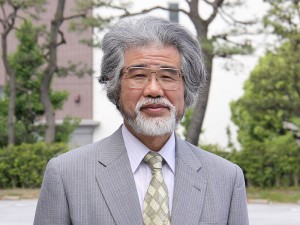 Norio Nakatsuji, Editor-in-Chief
Norio Nakatsuji, Editor-in-Chief
Prof. Nakatsuji received Doctor of Science in developmental biology from the Graduate School of Science at Kyoto University in 1977. He then spent several years in postdoctoral training at Umea University in Sweden, Massachusetts Institute of Technology and George Washington University in USA, and MRC Mammalian Development Unit in UK. He returned to Japan to join the Meiji Institute of Health Science in 1984, and became a professor at National Institute of Genetics in 1991. In 1999, he moved to the newly reorganized Institute for Frontier Medical Sciences at Kyoto University, which is devoted to both basic and application research in regenerative medicine. His main research interests have been developmental biology of mammals focusing on germ cell lineage, nervous systems, and pluripotent stem cells. In 2003, his group succeeded in deriving human embryonic stem (hES) cell lines and distributing them to other scientists. Since 2007, he is the founding director of Kyoto University’s Institute for Integrated Cell-Material Sciences (iCeMS), an institute which aims to advance cross-disciplinary research and technological innovation based on cell biology, chemistry and physics. Recently, his research group is focusing on multidisciplinary research using human ES and iPS cells in collaboration with chemical biology and material science groups, which includes development of chemical tools for stem cell control and creation of disease model cells for research and drug discovery.
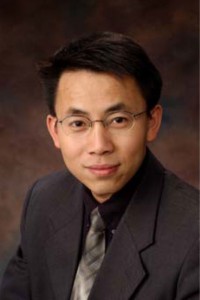 Jianjun Cheng, Associate Editor
Jianjun Cheng, Associate Editor
Jianjun Cheng received a B.S. degree in Chemistry from Nankai University, China, in 1993, a M.S. degree in chemistry from Southern Illinois University at Carbondale in 1996, and a Ph.D. degree in materials science from the University of California, Santa Barbara in 2001. From 2001 to 2004, Cheng was a senior scientist and a project leader at Insert Therapeutics, Inc. After working as a postdoctoral fellow at Massachusetts Institute of Technology from 2004 to 2005, Cheng joined the faculty of University of Illinois at Urbana-Champaign (UIUC) in 2005. He is currently an associate professor of Materials Science and Engineering, and is a faculty affiliate with Department of Chemistry, Department of Bioengineering, the Beckman Institute for Advanced Science and Technology, Micro and Nanotechnology Laboratory, Institute of Genomic Biology, and the Cancer Center of the University of Illinois. Cheng’s research is focused on design, synthesis and application of polymeric- and nano-biomaterials in drug and gene delivery. He received a Prostate Cancer Foundation Competitive Award (2007), a National Science Foundation CAREER Award (2008) and a NIH Director’s New Innovator Award (2010).
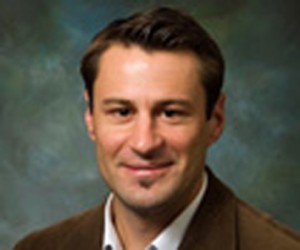 Matthias Lutolf, Associate Editor
Matthias Lutolf, Associate Editor
Matthias Lutolf is Head of the Laboratory of Stem Cell Bioengineering (LSCB) which belongs to the Institute of Bioengineering at Ecole Polytechnique Fédérale de Lausanne (EPFL) in Switzerland. He was trained as a Materials Scientist at ETH Zurich where he also carried out his Ph.D. studies on the development of a novel class of biologically responsive synthetic hydrogels for tissue engineering (2004). In 2005 Lutolf joined the Baxter Laboratory in Stem Cell Biology at Stanford University to work on stem cell biology with Postdoc fellowships from the Swiss National Science Foundation and the Leukemia and Lymphoma Society. In 2007 Lutolf won a prestigious European Young Investigator (EURYI) award to start up his independent research at EPFL. His work interfaces biomaterials engineering, microfabrication and stem cell biology to elucidate how microenvironmental signals control stem cell fate and to find better means to grow stem cells in-vitro.
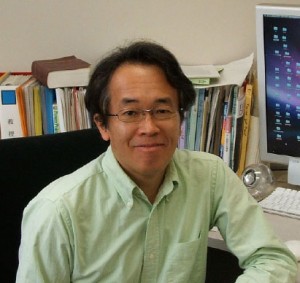 Hiroshi Sugiyama, Associate Editor
Hiroshi Sugiyama, Associate Editor
Hiroshi Sugiyama obtained his PhD in 1984 with Teruo Matuura at Kyoto University. After postdoctoral studies at the University of Virginia with Sidney M. Hecht, he returned to Kyoto University in 1986 as an assistant professor and became an associate professor in Isao Saito group in 1993. He was promoted a full professor of the Institute for Medical and Dental Engineering at Tokyo Medical and Dental University in 1996. He has been a professor of chemistry, in the Graduate School of Science at Kyoto University since 2003. In 2008 he was appointed as a principle investigator of iCeMS. His research interests involve the bioorganic chemistry of nucleic acids and his research group is defining the chemical principles underlying the recognition, reactivity and structure of nucleic acids. He has been awarded a Nippon IBM award in 1999, and The Creative Work Award of Chemical Society of Japan in 2005. He is a member of the Editorial Advisory Board of ChemBioChem (since 2005) and J. Am. Chem. Soc (since 2009).
Don’t forget if you want to find out about the first articles once they’re published online you can sign up for the Biomaterials Science RSS feed or Table of Contents alert.
To keep up with the latest news you can Like us on Facebook or Follow us on Twitter or sign up for the Biomaterials Science Newsletter.










